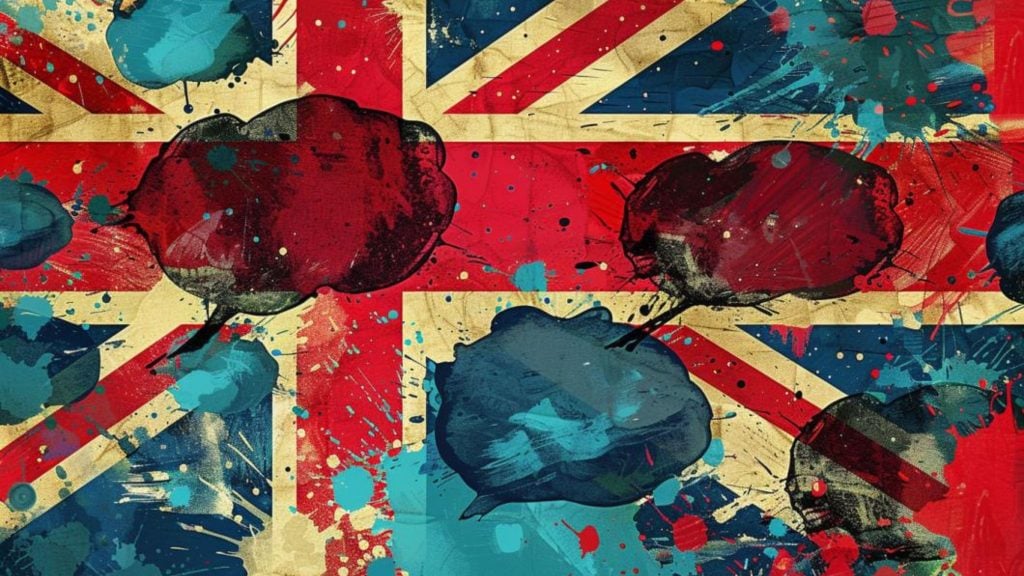The social media companies are not publishers by definition. They do not choose who uses their platforms, what they talk about, or the words they use. It is not social media’s right to enforce a zeitgeist or status quo. They are not even responsible for decorum. When we discuss private companies we must not be aiming to increase their advantage over the private citizen.
There was the Tea Party, there was Occupy Wall Street, and before 2000 every liberal was against global corporations crushing local competition. Only neoliberals and neoconservatives supported monopolies gaining hegemonic control.
Private businesses do not get to define their means of operation. Before the 1970s, oil paints were produced without archival labeling. This meant that artists did not know how long paints would last unless they had studied in chemistry, and had memorized the longevity of every chemical compound of paint. Works by Van Gogh had already begun to fade a little after more than half a century of existence.
Archival paints are not perfect, and the chemistry behind paint is not completely studied, but those labeled archival promise up to two centuries of color. If these practices had been in place in the 1800s then there are innumerable modern masterpieces that could have stayed true to their original color composition to this day. Granted, it would not make art immortal, but it would have given expression itself a worthy gift.
Limiting businesses is not a new idea, and the EU has mandates about the lengths of candle wicks. For the leftists to posture that they’re looking out for the interests of the economy when they defend the right of platforms to ban their users is absurd.
Social media is not entertainment, but the main channel of communication in our society. The majority of legacy media consumers are older than 54. Practically everyone in their 20s relies on a mixture of YouTube, social media sites, and Google for learning, occupational reasons, and political discourse.
To ban someone from these platforms is to ban them from the public. CNN is a publisher and as a publisher they may express discretion with who they choose to have on their network. If they don’t think that something or someone is relevant enough to cover, or if they think it would be harmful to do so, then they have no obligation to. It is absolutely their right to choose what material goes on their private network which no free individuals can join at will.
YouTube is not CNN. YouTube is a platform which was made possible through rapidly developing technologies and generations of early adopters who populated the platform with their private content. Every individual YouTube channel publishes its own content, which they approve and curate themselves. The voice of the channel reflects the voice of the producer, not the platform. Filthy Frank is one of the most iconic channels in YouTube history, but that channel is not the voice of the platform. Instead, Filthy Frank is a voice of the community.
Due to this relationship, where Filthy Frank is more popular with the people who grew up using YouTube than the channel is with the CEO of the platform, he is not a preferred creator. Still, his channel exists on the platform.
YouTube doesn’t look down on Filthy Frank because he broke any laws, but because he doesn’t fit the image that they would like to sell advertisers. However, they have not been able to find a reason to delete his channel, and if they did, it would only demonstrate further the disregard they show our Bill of Rights.
Large global companies don’t need to succumb to the rule of any one country. At this point in history, we understand that they practically cannot understand the idea of a local market and that they prefer to juggle continental services.
It is evident that America can’t demand that Facebook treat its EU users in a certain way. If Brussels decides that no one can discuss governments critically within their bloc of countries, then the social media platforms should enforce the laws of that government in that region as they see fit. However, they must respect the laws of each individual market that they enter if they are not American companies.
Gab, which has remained a proud American platform, can allow people the privileges of our Bill of Rights globally because they do not have the pretensions of being a company based nowhere. Andrew Torba, the CEO, has made clear that he is enthusiastically American, and would like to share the securities that America’s constitution offers to everyone interested.
When the Silicon Valley companies say that not only are they not Silicon Valley companies, not only are they not American companies but that they are global companies due to the diversity of the nationalities of their users, they forfeit their relationship with America. If they want to do business with us as global companies, then they must negotiate with us global companies.
This means they must respond to the Southern United States when the social media companies have pretensions of banning abortion-critical content for it being unethical. If they are to remain the dominant vehicles for conversation and employment, then they must respond to the laws of the market that they serve. All Americans enjoy the freedom of speech backed by the very laws of this country, we do not ban people from the primary forms of communication because of their opinions or their actions.
In China, they are experimenting with banning people with too low of a social credit score from using planes, trains, and other public services. They are not allowed to pay for access to the tools which make modern life possible. This cannot be allowed to happen in America.
Recently Human Events published “Platform Access is a Civil Right” by Will Chamberlain. In it, he proposes that the laws which evolve to address the social media platforms should not be regulatory laws, but constitutional ones. He references the Supreme Court case, Packingham v North Carolina. In this instance, a state government had restricted pedophiles from accessing social media, which is a reasonable cause for banning individuals if there is one. Predators should be the first people discussed when it comes to platform access.
Ultimately the Supreme Court found that this was an unconstitutional action taken by the state and reversed the law. If state governments aren’t allowed to limit their own citizens’ access to public spaces, then it’s untenable to suggest that private businesses can. Private businesses are not voted upon and ideally accountable authorities, but capitalistic monopolies. They have no authority over the freedoms of people other than those they can enforce before completely dissipating brand loyalty.
Chamberlain’s proposal is that in the future we should have laws which allow judges to secure the freedoms of the public. Similarly to how the cases against phone companies are settled, he suggests a system where citizens can go to the courts if they have been unfairly banned from access. This proposal is perhaps the most promising idea suggested so far.
When the Supreme Court decides unanimously that state governments cannot restrict predators from accessing the main form of youth communication, then we have reason to demand that it is unconstitutional to restrict platform access merely because of opinion. Tommy Robinson has been targeted both by social media platforms and the progressive media outlets they have assisted in inciting political violence.
If the government does not have the power to protect its children from previous offenders, then platforms should not have the right to target political dissidents.
PayPal has banned both Robinson and Torba from using their services, along with many other conservatives worldwide. Of those that have been arrested, most cases where conservatives have been taken into custody have been an affront to human rights, where they have been mistreated in hopes of silencing them. The dominant companies of the internet are trying to play to their political interest by limiting public engagement and visibility.
This behavior is tyrannical. It’s not acceptable when a government does it, and it’s not acceptable when a business does it. In America, we are free people and we must appreciate that. We must demand that no one controls the way that we speak or the way that we think, because no one deserves to control our future but us. Still, these companies have silenced our voices from Alex Jones to Gavin McInnes.
For better and for worse, we rule ourselves. Legally that is what is promised to the American people. We make compromises, such as federal governments which decide to engage in fruitless wars on drugs, but those bad deals only occur when we are too lax about defending our freedoms. The American promise is the right to say no to power, not the promise that those with power won’t abuse us. It’s our responsibility to decide our future for ourselves, and we must demand the rights our country represents if we want to remain a civil society.
If you're tired of censorship and dystopian threats against civil liberties, subscribe to Reclaim The Net.









